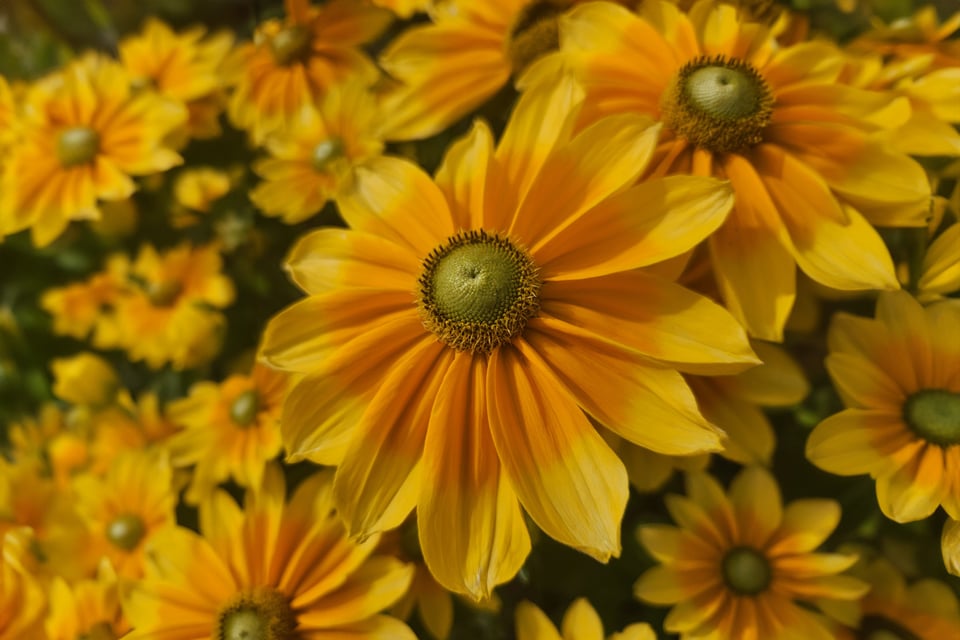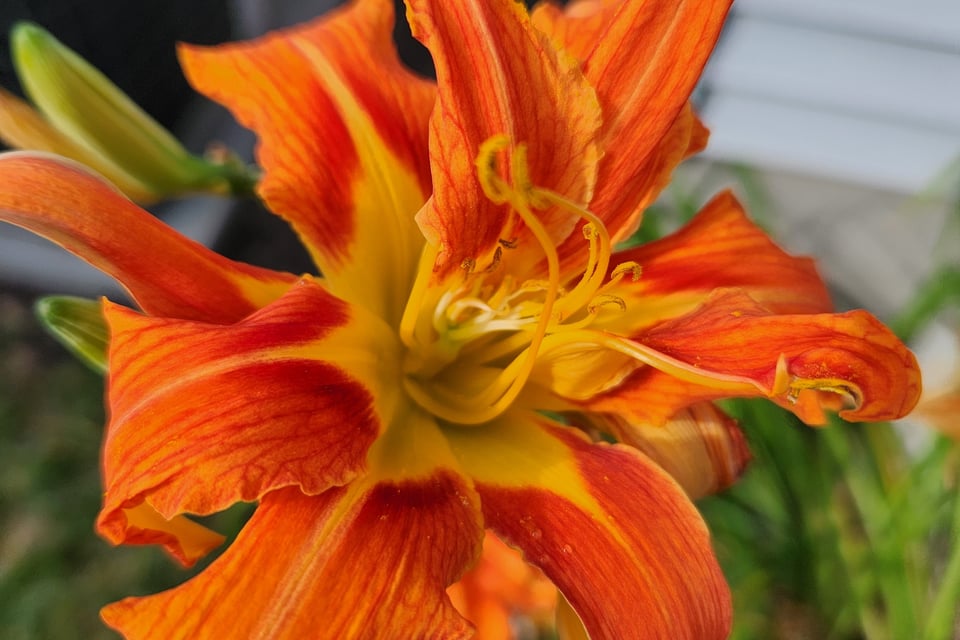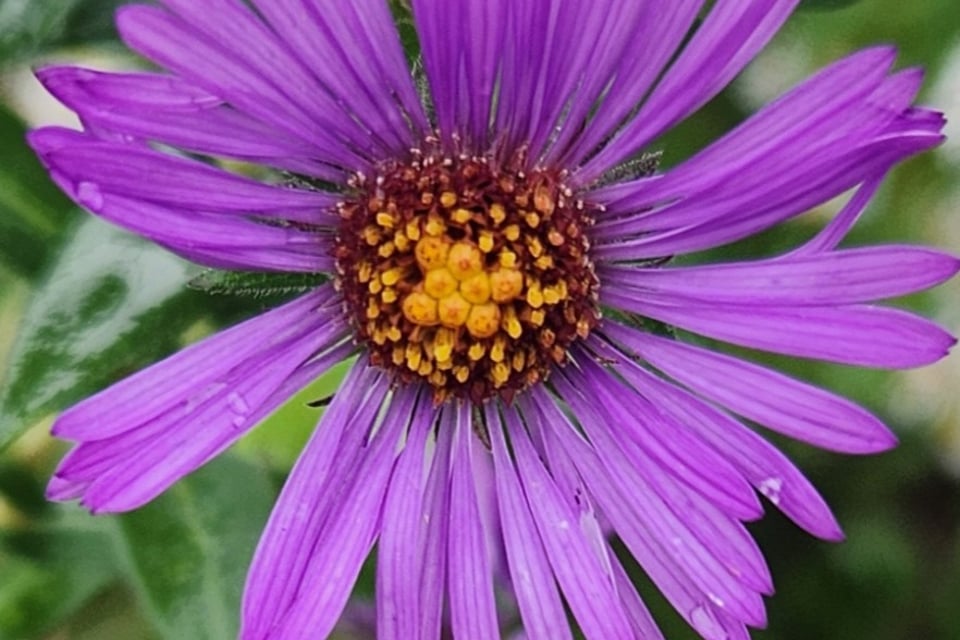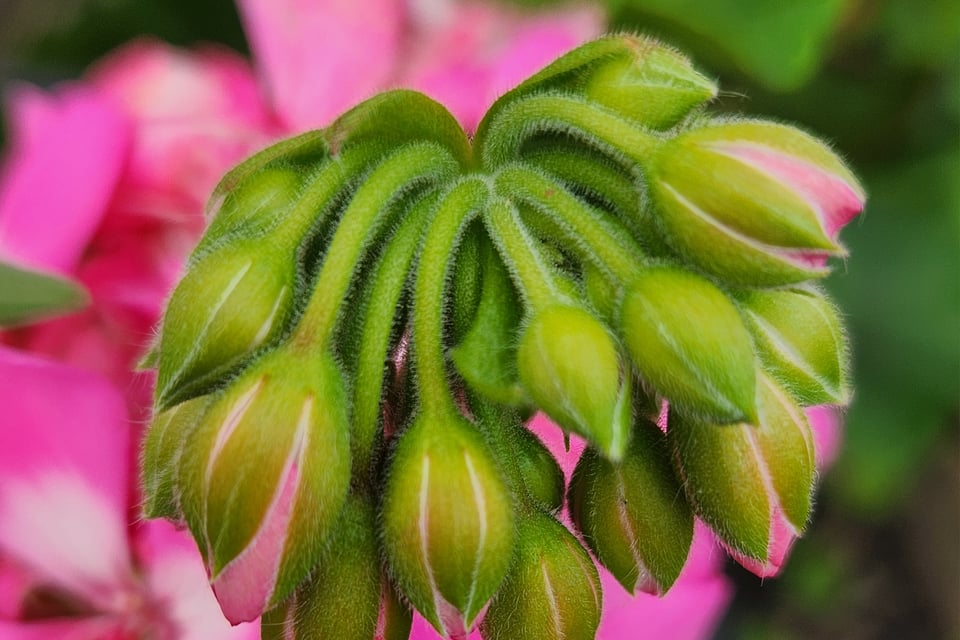Beyond the Bloom: What Flowers Teach Us About Comparison
Written by Monica Ebersole
Opportunities to learn are all around us. Even small flowers can teach big lessons about the pitfalls of comparing ourselves to others.

Have you ever found yourself in this scenario? You’re going about your day, feeling mainly content, until something suddenly shifts your attention to someone else’s accomplishments. Maybe your boss compliments your coworker on his or her work. Or perhaps you check social media and see pictures of your friends looking flawless and impossibly photogenic.
In an instant, you suddenly plunge headfirst into the comparison trap. And even though you’ve been here before, you can’t resist the urge to cycle through all the ways you fall short compared to this other person.
Does this sound familiar?
If so, you’re in good company. Comparison is a problem that I sometimes struggle with as well. In fact, I was recently in a battle against comparison when I experienced something that helped give me some much-needed perspective.
A lesson from flowers
Within the span of two weeks, I made two separate visits to a local botanical garden. During my first visit, I enjoyed observing the beauty of all the bright blooms and fresh buds. I’ve always been fond of tulips, and there were several large flower beds full of them in a variety of vibrant, striking colors.
When I had the opportunity to go back to the garden with some friends, I was excited for them to see the flowers as well. But to my surprise and disappointment, when we reached the spot where the tulips had been in full bloom just two weeks earlier, nearly all were gone.
As I continued meandering, I noticed many other flowers in full bloom on my last visit were also gone. My disappointment grew as I realized that my friends wouldn’t get to see the beautiful blossoms after all.
It just wasn’t the same.
But then I noticed something. As we made our way along the path, I began to see a variety of flowers that hadn’t been there the first time. In fact, there were whole sections that I had barely noticed before, and they were now in full bloom. The garden was no less beautiful than it had been two weeks prior. It was simply beautiful in a different way.
Reflecting on my visits to the garden, I realized that what I had witnessed could teach some valuable lessons about comparison.
Just like flowers, we were all designed to be different
Have you ever found it difficult to pick a favorite flower? I don’t blame you. There are over 400,000 varieties of flowering plants, each with its own unique appearance and characteristics. In fact, trying to choose a favorite flower isn’t really necessary. While we may have our individual preferences, we recognize that each and every variety of flower has its own beauty.
What’s more, we realize that there is tremendous beauty in the diversity of the flowers. God gave each type of flower the unique characteristics it needs. No two varieties are exactly alike. This is a wonderful thing! Imagine how boring it would be if every flower looked the same and possessed identical qualities.
Flowers perfectly showcase the variety of beauty that exists in God’s creation. And so do we! Just as He did with the flowers, God gifted each of us with our own unique traits, appearance and differences. We are designed to be beautiful in different ways.
This alone is worth awe and appreciation, but there’s more!
God also provides us with “diversities of gifts,” as stated in 1 Corinthians 12:4, to use in service to Him and His Church. Verses 7-10 list some of these spiritual gifts, such as the capacity to communicate words of wisdom and knowledge that edify and encourage others.
Here, we read another interesting point: God does not give the same gifts to all of His people. Instead, He gives individually chosen gifts to each person (verse 11).
It’s so easy to compare ourselves to others, especially to those who possess a particular gift we admire and would like to have. But our distinct gifts contribute uniquely to the Body of Christ (Romans 12:4-6).
With this perspective, we see how our variety of gifts complement each other in our service to the Church. We should appreciate and enhance each other’s gifts instead of comparing ourselves or becoming envious of someone else’s abilities. God can beautifully arrange our gifts together, like a vibrant garden or floral bouquet, to strengthen the Church.
Just like flowers, we can bloom at different times
Some people, it seems, receive gifts that are quickly made evident. It can seem as if they were born to fulfill a particular role and can do so with ease. But most of us need patience; our spiritual gifts are not so immediately apparent. We can, and should, ask God to help us discover our gifts and how He wants us to use them.
However, there can still be a period of waiting and wondering. And even once we begin to understand where our gifts lie, we must still develop them. Then, there will come a day when we have honed and developed our gifts and can provide true benefit to others, especially those in the Church (Galatians 6:9-10).
One of the trickiest things about this cycle is that its timing is different for everyone. For this reason, we really can’t compare another’s season of flourishing with our season of hardship or growth.
Stay connected to the source of nourishment
As difficult as these other seasons may be, they are essential for growth. When strolling through a garden, we tend to focus on the beautiful flowers in full bloom. However, surrounding them are plants in earlier stages of growth, preparing for their time to bloom. These stages are just as important, ensuring the plants will flourish when their time comes.
Our seasons of growth are vital, but they can only take place if we are connected to our nutrition source. Much of the nutrition flowering plants need comes from water and nutrients within the soil. Their roots reach deep into the ground to bring these vital nutrients to the plant so that it can be nourished and thrive.
In order to effectively use our gifts, we must be firmly rooted in our source of spiritual nourishment, God the Father and Jesus Christ (Jeremiah 17:7-8).
If we find ourselves discouraged and fear that our growth has stalled, it’s worth asking ourselves if we have become disconnected from our nutrition source. John recorded a very important message from Christ on this point: “Abide in Me, and I in you. As the branch cannot bear fruit of itself, unless it abides in the vine, neither can you, unless you abide in Me” (John 15:4, see also verses 5-8).
Sometimes we can become so fixated on comparing ourselves to others that we fail to recognize the true source of the problem—that we have distanced ourselves from God, the One who gave us our gifts in the first place.
Comparison impacts our ability to use our gifts
Appreciating others’ gifts without feeling inferior or envious is easier said than done. One common driver of comparison is the seemingly endless cycle of watching others use their gifts while wondering what our own gifts are and when we will get an opportunity to use them.
As natural as this feeling is, we can’t let it dominate our thinking.
We read of the danger of comparison in 2 Corinthians 10:12: “For we dare not class ourselves or compare ourselves with those who commend themselves. But they, measuring themselves by themselves, and comparing themselves among themselves, are not wise.”
Regularly falling prey to the tendency to compare keeps us trapped in a self-focused mindset that prevents us from fully using our gifts as God intends.
It may take time to discover our gifts and how to use them. But if we can keep the right perspective, we can humbly serve God and His Church in ways we never imagined.
For more information on comparison and 2 Corinthians 10:12, read “Comparing Themselves Among Themselves” and “Overcoming Self-Degradation.”













